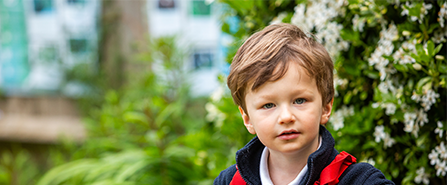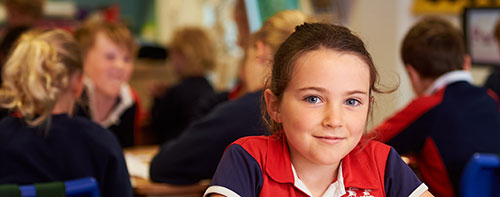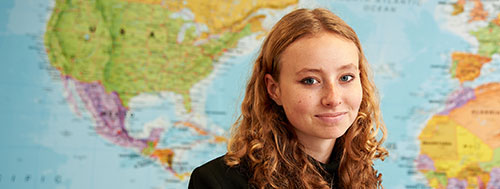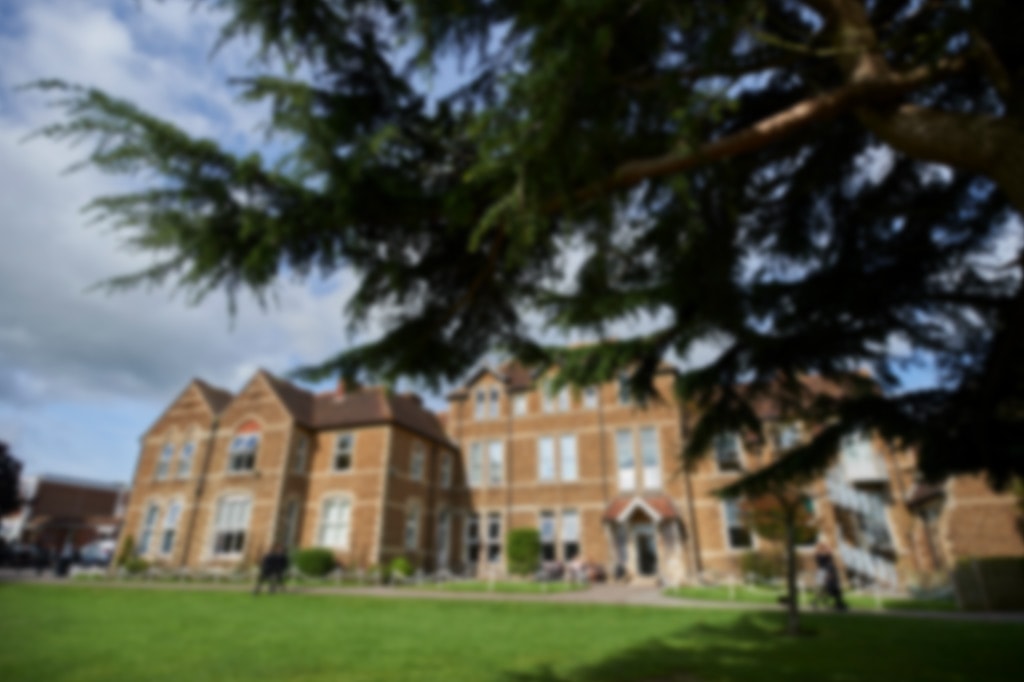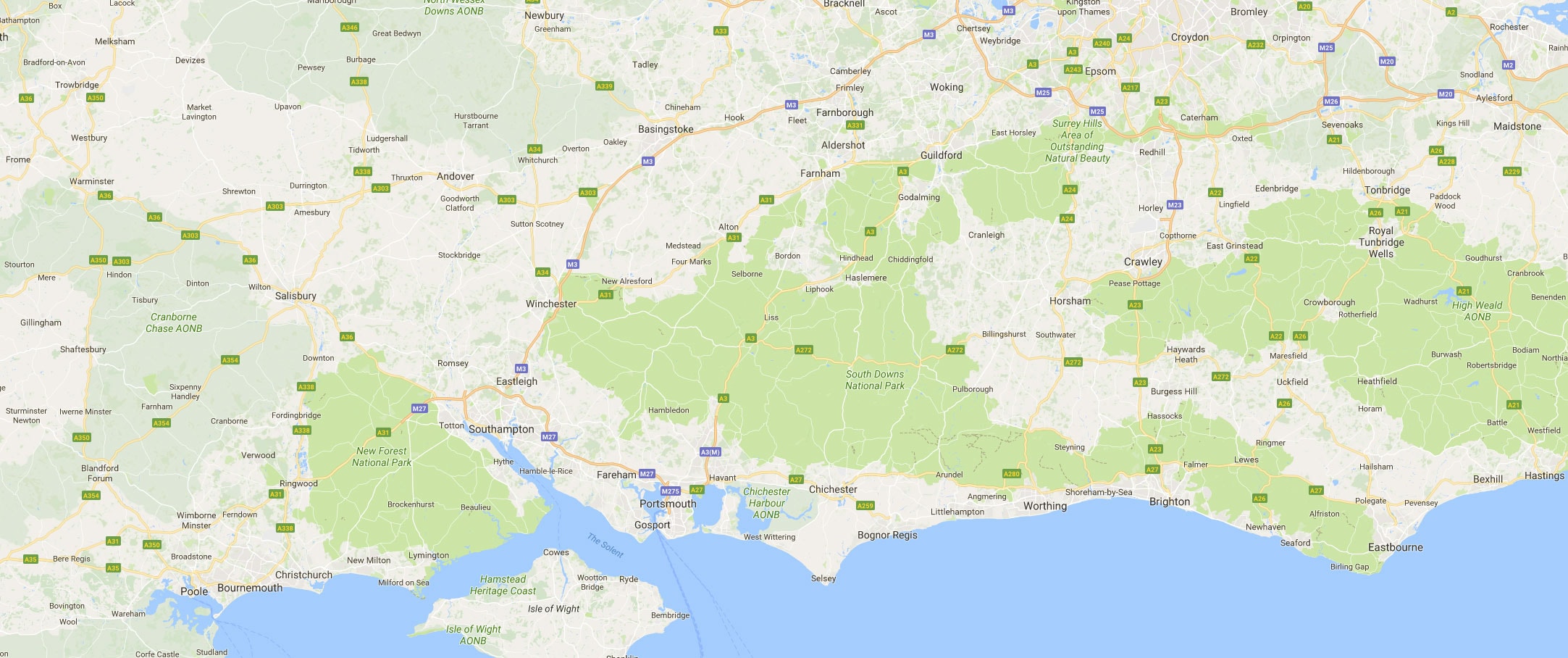A warm welcome
Our pupils benefit from a wealth of opportunities that support and inspire them on their Churcher’s journey.
Below you will find a range of content enabling you to explore further including a welcome from the Headteacher, Mrs Robinson, an insight into daily life at school and nursery, and a glimpse of our exciting annual STEAM week.
Please use the quick links below to discover all about life at Churcher's College Junior School and Nursery.
- Watch our short films on Junior School life
- Take our virtual tour
- Read our testimonials
- Leaf through our publications
- Look through our FAQs
Headteacher's Welcome
Nursery Welcome
Life in Year 3
Steam Week
Virtual Tour
Take a virtual tour around the Junior School and Nursery to discover us for yourself:
Click on the image above or click here: Take Virtual Tour
Testimonials
Read what parents, pupils and others have to say about our Junior School & Nursery:
My son describes the Junior School as the best time ever, and it gave him such great foundations from which he has sprung and grown.
Parent
Thank you for everything … at senior school Freddie has been praised for his depth of knowledge, maturity, ability to contribute to the lessons. This is definitely in no small part down to all of your care!
Parent
Publications
Frequently Asked Questions:
Here you can read our frequently asked questions for prospective parents:
When can children join the school?
Entry points are at the Nursery, Reception and Year 3. Entry into other year groups are possible but depend much more on availability. Please contact us for further information.
How do I prepare my child for the assessment tests (Years 2 to 6)?
Children should have good basic numeracy and literacy skills. We do not recommend tutoring; children should have plenty of exposure to reading and real-life problem-solving involving numbers. We look for children who have a ‘can do’ approach and developed learning behaviours.
What happens in the assessment morning?
The children are made to feel very welcome and we keep the structure relaxed so we can get to know them at their best. They will be expected to participate in some games, complete some assessments in maths and English which includes reading, writing and comprehension.
How soon will we hear results from the assessment morning?
Parents will receive a letter in the post within 10 days.
What is the process for children who wish to enter the Nursery, Reception or Year 1?
We invite your child in to spend a morning with us and we observe them to ensure the school can meet their needs and that they can thrive here. We look for children with well-developed speech and language, as well as well-formed social and emotional skills. We look for characteristics of learning in children of this age group.
Will the school speak to my child’s current school?
We are required to contact the school, albeit with parents’ permission, to obtain a school reference, which may include pastoral information and standardised data if available and relevant. We may also ask your child to share their maths and English learning from their current school. Upon acceptance of a place, we will contact the school for a school report and we are compelled to request safeguarding information about your child(ren).
How is the transition into Year 3 managed when my child comes from another school?
A team-building day is arranged during the first week of term to further establish friendships and embed a cohesive ethos to the class. The transition is smooth thanks to our experienced Year 3 teachers who know this age group very well. Many of our new children come from various different schools where the routines, location and expectations can be different to Churcher's, yet both new and existing pupils see the experience as exciting and settle extremely well.
Are the children taught in sets?
Stretch and extension opportunities as well as support and reinforcement is available in lessons. In the Infants, there are full-time Teaching Assistants and so the teacher may work with different groups at different times to ensure the children make progress. In Years 3-6, the cohort is sometimes divided into three equal groups for smaller group teaching in maths and English which may have a different pace according to the needs of the child. The curriculum across the groups is the same and everyone is challenged.
How do you provide stretch and extension?
This is provided in every lesson and is available to all pupils. We believe that intelligence is not fixed and thus there is no glass ceiling to achievement. Children are set ‘next steps’, where appropriate. There are opportunities for pupils to access stretch opportunities in both enrichment and extra-curricular activities. Moreover, the breadth of the curriculum provides natural stretch for our pupils.
What foreign languages do the children learn?
Spanish from Nursery to Year 3; French from Year 4 to Year 6. There is extra-curricular Mandarin and German.
Is there wrap around care?
Early Birds runs from 7.30-8.20am (at extra cost); breakfast is available. After-school Study Club runs at no cost from 3.40-4.30pm alongside after-school clubs. From 4.30-5.30pm, Tea Club is available at an extra cost. Early Birds and Tea Club are available for children in the Nursery up to Year 6.
How much homework do the children have?
In Reception, children take home reading books, learn ‘tricky’ words and work on phonic activities. In Years 1 and 2 the tasks will include reading, spellings, maths activities, and key words. Years 3 to 6 are given 20 to 40 minutes of homework on 3 or 4 nights per week. The children in Years 3 to 6 are issued with a homework diary which parents are asked to check and sign every week. There is almost always no weekend homework (just reading) and we do not set holiday homework (just reading!).
What is the pastoral care like?
Pastoral care has a high priority at the school, and staff are committed to promoting the welfare and happiness of each pupil. Class teachers take primary responsibility for the general well-being of children in their class and are the first point of contact for any concerns. All class teachers teach the major academic subjects to their classes. Heads of Infants, Middle and Upper School track and monitor well-being as well as academic progress. The Junior School has the services of a qualified counsellor and play therapist; occasionally children are referred to them following discussions between teachers and parents. The Deputy Head is our pastoral leader and supports both pupils and parents in any pastoral ‘bumps’.
In the Nursery and the Infant Department classes, there is one class for each year group. From Years 3 to 6, there are two parallel classes. Pupils moving from Year 2 into Year 3 are divided into the two Year 3 classes as we welcome new pupils into the school. Pupils are reorganised at least once during their time in the Juniors (Years 3-6). They have a new Class Teacher each year and the letter distinguishing the two forms in the year will be the initial letter of the class teacher’s surname.
How do the children move to the Senior School?
Our aim is to feed the Senior School and ensure the children make a smooth transition. The vast majority of children move to the Senior School, whilst a small number may choose to transfer elsewhere for different reasons, such as a different academic environment which may suit a child better, moving to a different area, or other family circumstances. Whatever the situation, we guide and support parents through the process. We communicate with parents where there are concerns regarding their progress and potential to thrive at the Senior School. Conversations of this nature occur in Year 5.
What Sports do the children participate in?
All children in Years 1 to 3 take part in the 6 main sports played by the school - football, netball, hockey, rugby, cricket and lacrosse. In Years 4 to 6 the girls focus on netball, hockey and cricket, while the boys focus on football, rugby and cricket. Fixtures are offered for all the main sports from Year 2 onwards. There is opportunity to provide cross-over of sports, with children very much supported in pursuing their interests. Fixtures start as mixed-sex in Year 2, moving to a combination of single-sex and mixed-sex fixtures further up the school. PE lessons in the Infants focus on gym, dance, key skills, tennis and athletics. Juniors take part in outdoor adventurous activities (OAA), hockey, dance, gym, tennis and athletics. Infants receive 10 weeks of swimming lessons over the year with the Juniors receiving 8 weeks of swimming lessons over the year.
What if my child needs Learning Support?
Children do not necessarily progress in a simple linear fashion and some children may require some short-term intervention with their learning; this support is available from our Head of Learning Enrichment. If we are concerned about a child’s progress, we will refer them to the Head of Learning Enrichment. Following discussions with class teachers, further observations and assessments may be carried out. Some children may require some group intervention e.g. phonics club, touch typing club, maths club or handwriting group. Sometimes, we may recommend further cognitive assessments with an Educational Psychologist or Speech and Language Therapist.
How do children travel to school?
The majority travel by car; there is a popular link bus that transports children to and from the Senior School in Petersfield.
What extra-curricular activities are available?
There is a wide variety of choice, most of which happens after school between 3.50-4.30pm, whilst some take place either before school or during lunchtime. From paid clubs (e.g. dance, yoga, fencing) to clubs run by CCJS staff (e.g. art, poetry, sport, gym and much more) there are plenty of opportunities to try new things.
What musical instrument lessons are available?
All children have music lessons as part of their curriculum and there are plenty of extra-curricular musical ensembles they can be involved in. There is also a wide variety of individual instrumental lessons available. From singing to trombone, there is something for everyone and we can usually source a teacher if it is an instrument that we don’t currently cater for. Instrumental lessons, at an additional cost, usually take place within the school day on a carousel system. There are also many opportunities to perform on the stage with regular drama productions and class-led assemblies taking place.
How do parents get involved in school life?
Parents are invited to attend assemblies, special themed events and certain trips. Parents are always welcome to positively support the children at fixtures. There is a thriving Parents Association to which all parents belong with a very proactive PA Committee which consists of two Co-chairs, a Secretary, Treasurer, Key Events Coordinator, 250 Club administrator and parents (two representatives for each year in the school). Meetings are held once or twice a term. The Class Representatives promote a sense of community within the school by organising social events such as Quiz Nights and the Christmas Fayre, and arrange social events for the children, e.g. school discos and a film night. They also fundraise for the extras and take the ‘wait out of wanting’ to provide noticeable benefits for the children through fundraising. Typical acquisitions funded by the PA have included play apparatus, a kiln, a greenhouse and choral risers.
Thank you for joining us, if you have any questions please contact Admissions by emailing [email protected].
